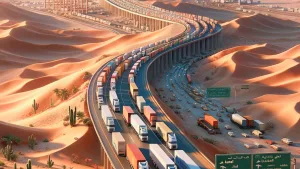The Middle East and Africa region include 55 startup ecosystem represented in the top 1000 rankings. The region mainly consists of developing countries and consists of 20 countries in the top 100 rankings. The leading player in the area is Israel.
Regardless of Israel, which in 2020 advanced to third place in the world after the United Kingdom and the United States, the global ranks of other countries in the region are relatively low. There is still a considerable gap between Israel and the country that follows it, the United Arab Emirates, at 43rd. No other country in the Middle East and Africa region has made it to the global 50 best, and this seems to be difficult to achieve now that the other major regional players have seen a drop. In the ranking, for example, Kenya slipped 10 points, and Nigeria fell 12 places. Nevertheless, some Arab countries show strong momentum this year, notably Lebanon, Jordan, and Bahrain.
Startup ecosystem – Citywide, Jerusalem, and Dubai are both enjoying good momentum and boosted their ranking in the top 100. Big African cities like Nairobi and Lagos recorded a significant drop, but some good news arrived from South Africa, increasing in several major city rankings.
When compared to the rest of the world, the United States stands alone
There is a big gap between the United States and the United Kingdom, the second country. 4 of the world’s top 5 cities are located in the USA, and there is no indication that any other country is closing the gap.
Additionally, San Francisco is in a place on its own when it comes to highly-rated cities, a phenomenon that seems unrepeatable. Even New York, which maintains its position as the second-highest ranked city globally, is still a third of the overall score behind San Francisco.
Startup ecosystem – Boston and Los Angeles swapped, finishing fourth and fifth, respectively. Much of Boston’s innovation is developing high-quality medical devices and deep technologies, while Los Angeles focuses on B2C and continues to perform very well. Outside of the Big Four cities in the United States, many second-tier cities remain strong. Chicago slipped five places to 13th, while Austin fell four areas to 17. In part, Washington, DC jumped 15 places due to a change in the ranking algorithm that highlighted strengths in the ecosystem. The additional rank leaps come from Minneapolis, Pittsburgh, Santa Barbara, and Boulder, Colorado.
As mentioned previously, the number of cities in the US has decreased because of data improvements that allowed us to clarify some of the more clustered cities. There have been 12 new US cities added in 2020; the US has 383 of our top 1000 towns. This is a reduction from 2019 but still an incredible feat given that more than a third of the top Startup Ecosystems worldwide are based in America.
Startup Ecosystem Overview
Startup ecosystem – It is a common conception that China is challenging the USA for the crown of the Startup Ecosystem global center. We have witnessed significant growth in Chinese ecosystems this year (both Beijing and Shanghai are now ranked in the top 10). Still, the ecosystems are fundamentally different. We are big believers in the model of a free-market-oriented startup ecosystem that chaotically produce giants via competition instead of being guided and planned by a more centric
approach. This article from Bloomberg shows that even with AI, most promising startups are still based in the USA.
Startup ecosystem – The United States might have lost some of its glamour regarding being the land of infinite opportunities. Still, in aspects of a developed ecosystem populated by startups and investors who have an eye for profit and high-risk tolerance, it is second to none. The country’s flexible bankruptcy laws are one example of why it is better to fail and start over in the US than the losses accrued by those same failures in many European countries. We recommend reading the following article about how investors’ psychology in Silicon Valley is fundamentally different from anywhere else. The gap that Silicon Valley has created is not based on technology but mindset.
Our recently launched rankings measuring innovation specifically in response to COVID–19 shows that the USA continues to be first, demonstrating how it leads on all fronts. We should especially celebrate Seattle and San Diego, ranking at 7 and 8 for their response to the pandemic, overperforming their overall ranking scores.















